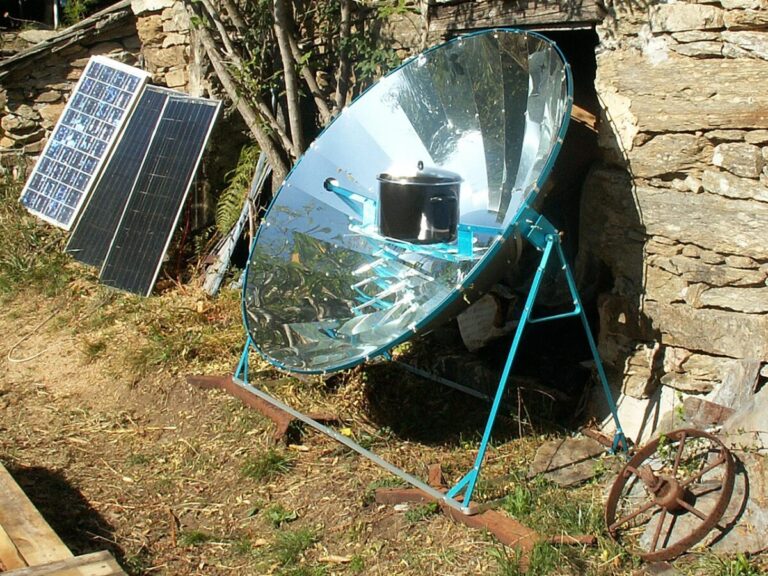Scientists have performed an analysis of 20 years of academic publications on PV-driven electric cooking and found interest in the field in 2021-2022 in both developing and developed countries. They have also outlined some potential future developments.
A research group led by Academics of Ghana’s Kwame Nkrumh University of Science and Technology has analyzed the development of PV-driven electric boil (e-Cooking) in the last twenty years. Through systematic review and bibliometric analysis, they have established emerging trends and developments in the field.
“E-cooking uses electric cooking stoves, induction cooking tops or other e-cooking devices. This approach offers various advantages compared to traditional cooking methods, including improved indoor air quality, reduced deforestation, higher energy efficiency and the potential to use renewable energy sources to reduce greenhouse gas emissions (BKG), “the team said. “The use of solar energy has become a very promising source. This is especially relevant for the development of countries with limited access to electricity. “
With the help of various academic databases, the scientists searched for all PV cooking articles that were written in English between 2003 and 2023 and published in peer-reviewed magazines, conference procedures or book chapters. The first search yielded 229 records, reduced to 160 after head and abstract screening and 48 after full article screening.
The trends
Based on those articles, they discovered that the subject had only had a maximum of three articles per year between 2003 and 2012. The interest in this has grown since 2013, with a growth in a academic year, a peak in 2021 and 2022 with 18 and 17 articles respectively. India has the highest number of publications, followed by the United States, the United Kingdom and various developing countries such as Bangladesh, South Africa, Ghana, Nigeria and Malawi.
“The involvement of both developing and developed countries emphasizes various motivations for exploring this technology,” the researchers said. “When developing regions, the primary drivers are the need to tackle access to energy access and clean cooking challenges. Developed countries, on the other hand, are motivated by environmental problems, sustainable development goals and opportunities for technology transfer or cooperation options. Moreover, the market potential for production and distribution on solar PV-based e-Cooking equipment is an important factor that attracts worldwide interest. “
A thematic evaluation of keywords has shown that until 2016 research was aimed at the technology itself, while in 2017-2020 it focused on the development of the actual system, and it was most recently aimed at the level of energy (LCOE). Factorial analysis has the mutual connection of research in PV e-cooking and other renewable energy sources (solar, biomass, wind), off-grid and mini-grid solutions, cost-effectiveness, sustainable development goals and integrated poly-generation and demonstrated water treatment.
The future
The researcher has brought four specific topics to the attention and points to their development and potential for future growth. In the field of PV e-Cooking devices, they mentioned the development of PV-driven induction heaters, electric stoves and quick cooking points, as well as storage methods such as battery storage, phase changes (PCM) and insulated stoves.
In the field of integration with mini and micro-grids, they have pointed to the various projects worldwide that integrate PV cooking into a decentralized schedule and offer the forecast of the Machine Learning contribution. On the subject of hydrogen-based cooking with PV, they emphasized that it could become cost-competitive in 2030, but challenges such as storage, infrastructure and safety problems are still present. Regarding research into socio-economic and adoptive factors, they point out behavioral studies that show how different factors influence acceptance percentages.
By closing their paper, the group added that “future research should focus on the integration of artificial intelligence and internet of things (IoT) for predictive system optimization, the development of innovative thermal and hybrid storage solutions, research into scalable cooking technologies based on scalable hydrogen, performing socio-economic analyzes of user behavior and the assessment of environmental and economic effects through life cycle services. “
The research work was presented in “Promoting the revolution of the solar cook: insights into the developing landscape of solar energy-based electric cooking“Published in Solar energy progress. Scientists from Ghana’s Nkrumh University of Science and Technology and Cape Coast Technical University have conducted the study.
This content is protected by copyright and may not be reused. If you want to work with us and reuse part of our content, please contact: editors@pv-magazine.com.


